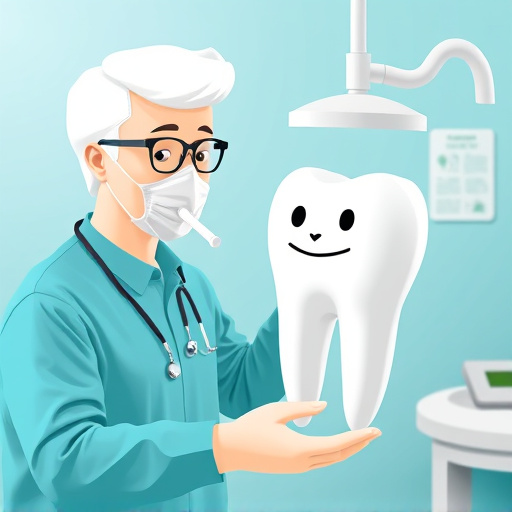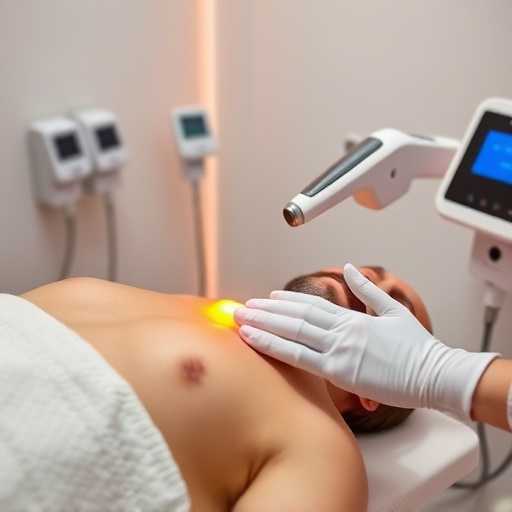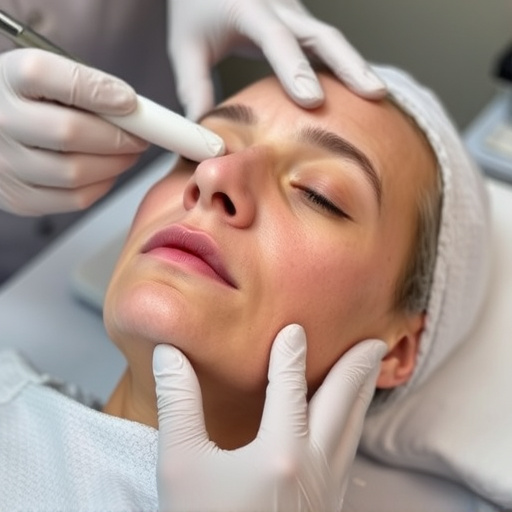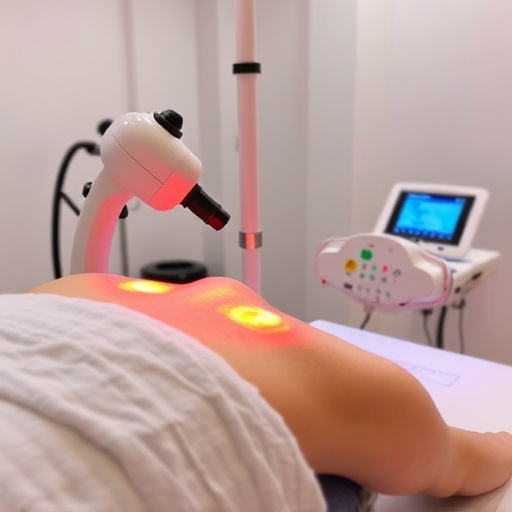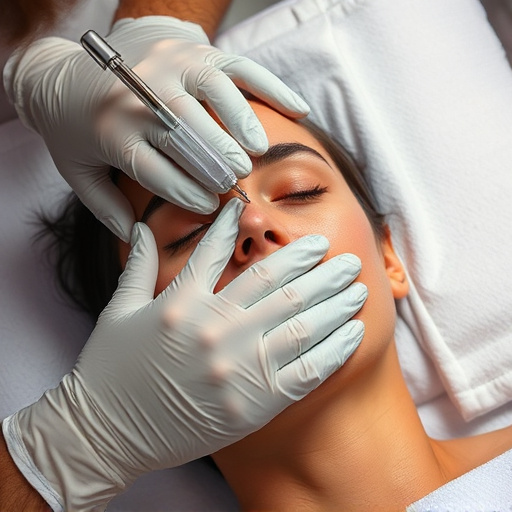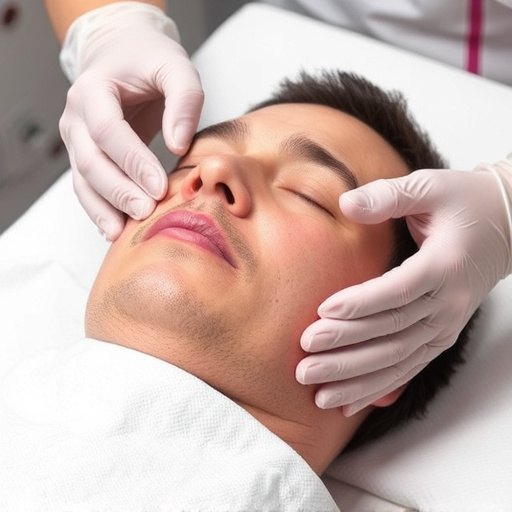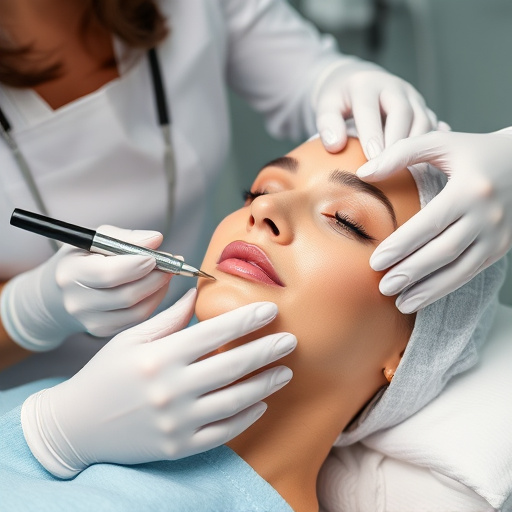Medical grade skincare offers potent formulations with higher active ingredient concentrations than OTC options, providing faster and more effective results for acne, hyperpigmentation, aging, and severe skin conditions like eczema and rosacea. Developed under strict regulations, these products ensure safety and efficacy through precise ingredient concentrations tailored to individual skin concerns, making them a preferred choice for personalized, optimal cosmetic outcomes.
Looking for skin care that truly makes a difference? It’s time to explore the benefits of medical-grade skincare, a powerhouse in the beauty world. While over-the-counter (OTC) products offer convenience, medical-grade formulas take it up a notch with concentrated active ingredients and precise formulations.
This article delves into the key differences between OTC and medical-grade options, highlighting the superior safety, efficacy, and personalized care that medical-grade skincare provides for your skin’s unique needs.
- Understanding Medical Grade Skincare: Definition and Benefits
- Key Differences: OTC Products vs. Medical-Grade Formulas
- Safety, Efficacy, and Individualized Care: Why Choose Medical Grade?
Understanding Medical Grade Skincare: Definition and Benefits
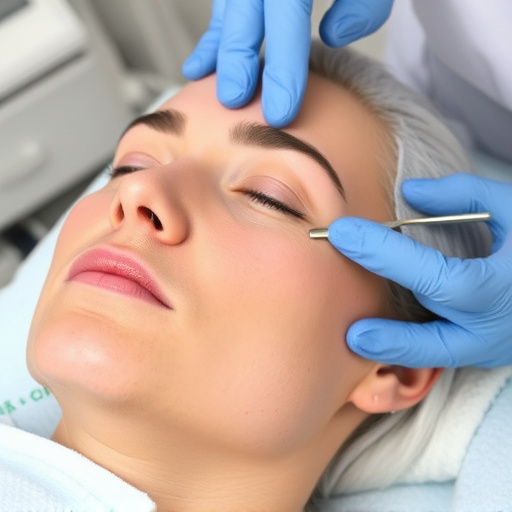
Medical grade skincare refers to products designed and formulated for professional use by dermatologists and other medical experts. These formulations go above and beyond over-the-counter (OTC) options, offering higher concentrations of active ingredients known for their efficacy in treating various skin concerns. The benefits of medical grade skincare are multifaceted, encompassing deeper cleansing, more targeted treatments, and often faster results.
Compared to OTC products, which generally have lower ingredient strengths and focus on basic functions like moisturizing or sun protection, medical grade skincare incorporates powerful active substances like retinoids, alpha hydroxy acids (AHAs), and vitamin C derivatives. These ingredients are renowned for their abilities in body contouring, skin brightening, and addressing conditions such as acne, hyperpigmentation, and signs of aging. Moreover, professional skincare treatments utilizing these medical-grade products can provide customized solutions tailored to individual skin needs, ensuring optimal results with minimal side effects.
Key Differences: OTC Products vs. Medical-Grade Formulas
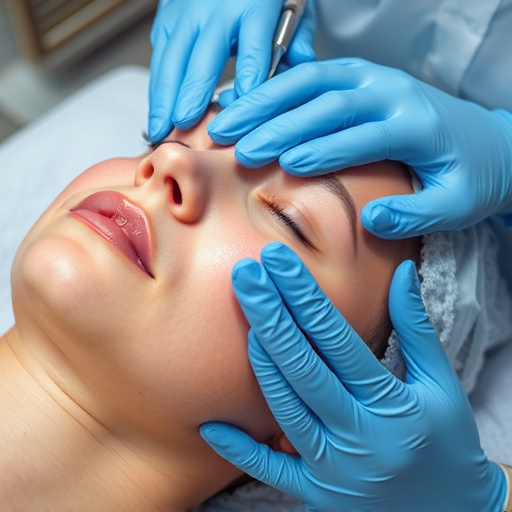
While over-the-counter (OTC) skincare products are readily available and often appealing due to their affordability and accessibility, they can’t hold a candle to medical grade skincare when it comes to potency and results. OTC options are designed for general skin concerns and typically contain lower concentrations of active ingredients, making them effective for mild issues like dryness or mild acne. However, for more severe conditions such as hyperpigmentation, eczema, rosacea, or signs of aging, these products often fall short.
Medical grade formulas, on the other hand, are created under strict regulations and guidelines, ensuring their purity and efficacy. These formulations often contain higher concentrations of active ingredients, including retinoids, vitamin C, and peptides, which have been clinically proven to deliver significant improvements in skin texture, tone, and elasticity. Moreover, medical-grade skincare treatments can include professional aesthetic treatments like chemical peels, microdermabrasion, and laser therapy, offering transformative results for various skin concerns, including anti aging treatments and targeted facial treatments.
Safety, Efficacy, and Individualized Care: Why Choose Medical Grade?
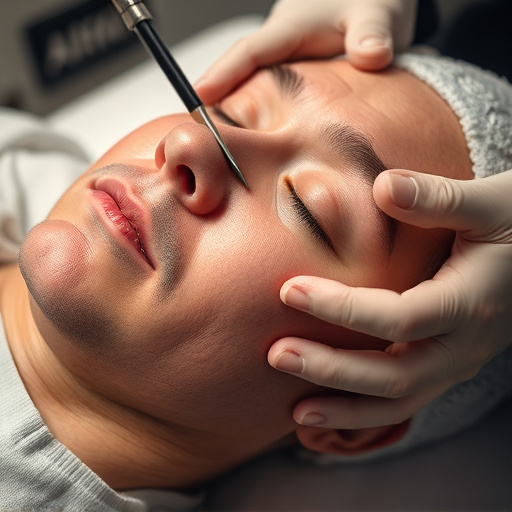
Medical grade skincare offers a superior advantage over over-the-counter options when it comes to safety and efficacy. While OTC products are widely accessible and relatively inexpensive, they often lack the rigorous testing and quality control measures implemented in medical-grade formulations. This means that over-the-counter creams and serums may contain ingredients that could potentially irritate sensitive skin or cause allergic reactions, especially with prolonged use.
Choosing medical-grade skincare ensures personalized care tailored to your unique skin concerns. These professional products are formulated with specific active ingredients at precise concentrations to deliver targeted results, such as improved skin texture, reduced pore size, and enhanced elasticity for a more youthful appearance—including benefits like skin rejuvenation, pore refinement, and even skin tightening. This level of customization and expertise is why many people prefer medical-grade skincare for achieving optimal and safe cosmetic outcomes.
Medical grade skincare offers a superior alternative to over-the-counter products, providing tailored solutions for various skin concerns. With its emphasis on safety, efficacy, and personalized care, it’s no surprise that many dermatologists recommend medical-grade formulas as the preferred choice for achieving and maintaining healthy skin. Investing in medical grade skincare allows you to take control of your skin’s future, ensuring optimal results and a glowing complexion.




